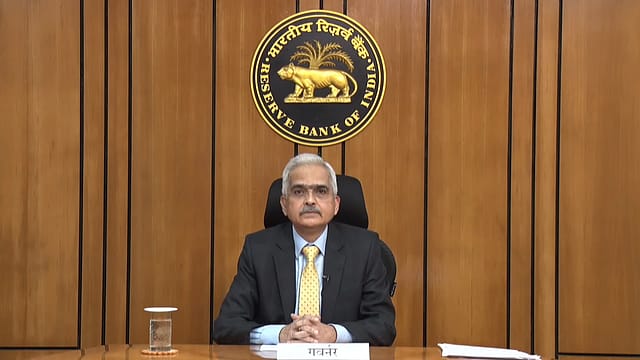RBI proposes new norms for banks' loan loss provisions
ADVERTISEMENT

The Reserve Bank of India (RBI) has proposed a new set of rules governing loan loss provisioning by banks as it looks to enhance the resilience of the banking system.
The central bank proposes to amend the regulations governing loan loss provisioning to incorporate a more forward looking "expected credit losses approach" as against the current "incurred loss" approach, the RBI says in a discussion paper.
The incurred loss approach used to be the global standard as well till very recently. However, this meant that loan loss provisioning used to happen much later to the increase in credit risk to the banks. Such delays in recognising expected losses under the "incurred loss" approach were found to exacerbate the downswing during the financial crisis of 2007-09, the RBI says.
The banking regulator has proposed that each bank will be permitted to design and implement its own models for measuring expected credit losses for the purpose of estimating loss provisions.
"The expected credit loss models adopted by the banks should be subject to rigorous validation. Where a bank has outsourced its validation function to an external party, the bank remains responsible for the effectiveness of all model validation work and should ensure that the work done by the external party meets the elements of a sound model validation framework on an ongoing basis," says the RBI.
The impact of adopting the expected credit loss approach to estimating loss provisions is likely to result in excess provisions as compared to shortfall in provisions.
The RBI says since default is a lagging indicator of credit risk and since classification of an exposure as NPA normally takes place after a borrower is overdue for more than 90 days, loan loss provisions are made by banks with significant delays after the borrower may have started facing financial difficulties thereby increasing the credit risk faced by banks.
"Ideally, the bank should have recognized the increase in the credit risk and started making provisions for the losses that would be expected in such exposure much before the default happened," the central bank says.
"Faced with a systemic increase in defaults, the delay in recognizing loan losses resulted in banks having to make higher levels of provisions which ate into the capital maintained precisely at a time when banks needed to shore up their capital, thereby affecting their resilience and posing systemic risks. Further, the delays in recognizing loan losses overstated the income generated by the banks which, coupled with dividend pay-outs, impacted the capital base of banks because of reduced internal accruals, which also affected the resilience of banks," it adds.
The RBI has sought feedback on the paper till February 28, 2023.